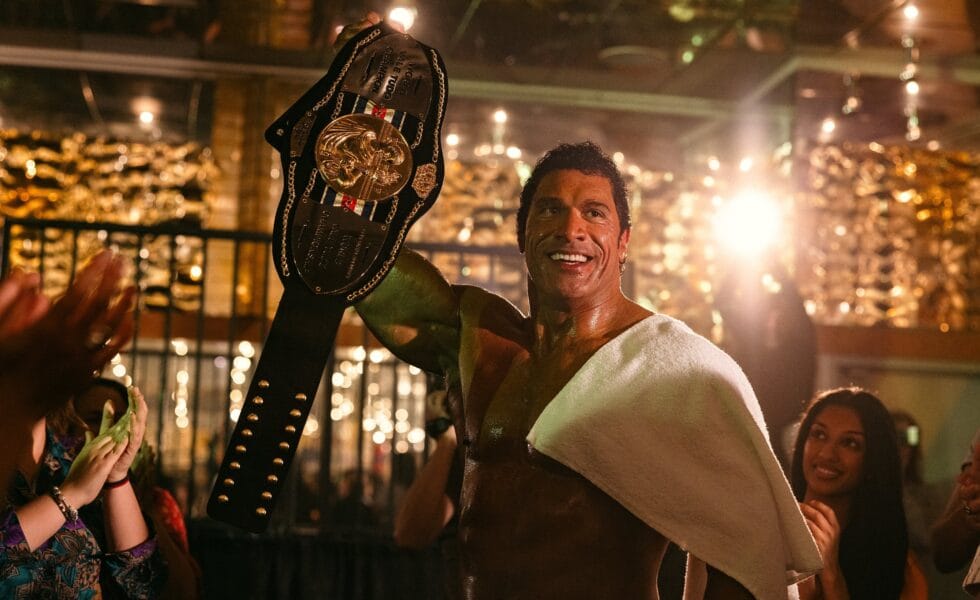Dwayne Johnson is pivoting to serious acting, but no amount of prosthetic make up can disguise how empty this is.
There’s a good movie to be made out of the life of pioneering MMA fighter Mark Kerr. In fact, we’ve already had one: the 2005 documentary The Smashing Machine: The Life and Times of Extreme Fighter Mark Kerr. Directed by John Hyams, son of genre legend Peter Hyams, that film was a no-holds-barred look at Kerr’s life and the huge physical and psychological costs that his career has laid on him. It’s a banger.
The Smashing Machine is not. Directed and written by Benny Safdie, who with his brother Josh gave us the excellent Good Times, Uncut Gems, and more, it covers much of the same material as the Hyams doco, but with none of the depth. It feigns depth with its visual language and production design, the restless camera and scrupulously gauche period detail practically screaming Scorsese! But the thing about Scorsese is he can tell volumes in a single detail; Safdie gives you all the details you could want, but none of the context to make them meaningful.
And so we follow Mark Kerr, played with commendable commitment but little non-physical impact by Dwayne Johnson, as he battles his way up the ranks of the nascent UFC. He’s also battling a painkiller addiction, which brings him into conflict with girlfriend Dawn Staples (an underutilised Emily Blunt), who drifts in and out of the narrative. The thing is, Kerr – much like Johnson, if you’ve read about his contractual demands on the Fast & Furious flicks – can’t handle the idea of losing. So what happens when he does?
Which sounds compelling – and more than a bit metatextual – but it doesn’t add up to much. This is a biopic by the numbers, going through the requisite beats but never imbuing them with life. Context counts, and while he see Johnson’s Kerr ground ‘n’ pound plenty of opponents into raw hamburger, it’s hard to get a sense of what each bout means for him until the last, when he’s facing the prospect of confronting old friend Mark Coleman (MMA fighter Ryan Bader, who offers a naturalistic and compelling performance). Even then, the pay off, dramatically and emotionally, is a pittance.
And that is perhaps understandable from a plot point of view, when the actual events dictate the story. It’s unforgivable when it comes to character. The Smashing Machine‘s big selling point is that this is Johnson’s pivot to serious thesping and for sure, if you want to see the Rock cry, you’ll see the Rock cry.
But while Johnson captures both Kerr’s physicality and his mannerisms, assisted by some impressive prosthetic make up to recreate Kerr’s battered mug, we get no insight into the man’s inner life. We never know what he wants, except in the broadest strokes. It’s not that he’s unlikeable; the myth that we’ll only watch likable protagonists is as dead as the myth of trickle down economics. It’s just that he’s… nothing. Not as presented here, at any rate; not as played by Dwayne Johnson.
The Smashing Machine is not much of a movie. It’s not even much of a marketing campaign for Johnson’s acting abilities, which seems to be the point of the exercise. It’s certainly a disappointment from Safdie, who until now might have been labeled crass or vulgar, but never boring. But for his first solo outing he’s delivered a by-the-numbers sports biopic that’s all sizzle, no steak.
The Smashing Machine is in cinemas from October 2 2025.








